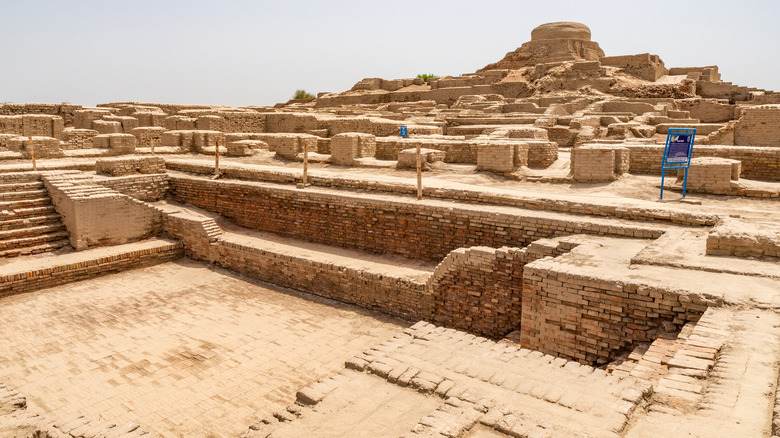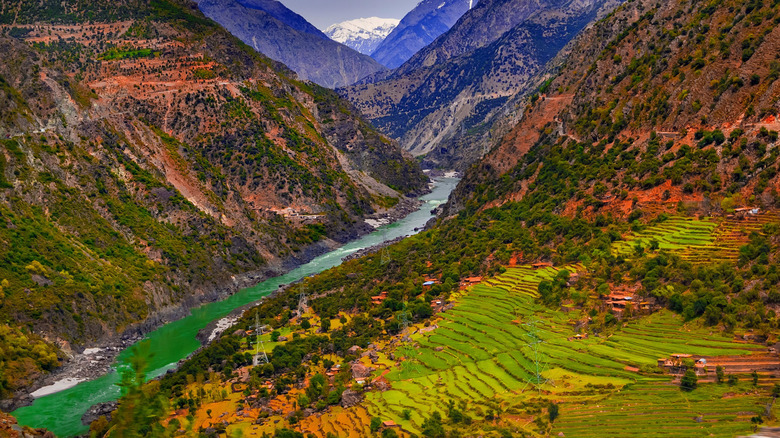The Real Reason The Indus Civilization Collapsed
The fertile lands surrounding the world's major rivers have been the birthplaces of humanity's oldest civilizations. Mesopotamia is arguably the one of the more well known, with the Euphrates and Tigris rivers having supported a massive number of ancient cities and their agricultural needs. To its east was the Indus River Valley civilization in the region of modern day Pakistan (via Britannica). Like their earlier Mesopotamian and Egyptian counterparts, they controlled the floodwaters of the Indus river for irrigation purposes, allowing them to flourish for generations.
Within their cities were complex drainage systems that allowed for the safe transport of water and sewage, with many homes connected to them (via Lumen). A communal bath area was also present, which evidently was regularly drained out of an awareness of the harm caused by stagnant water. Despite the advancement of such an early civilization, by 1900 B.C. they began a decline that baffled future researchers.
Changes in the flow of the Indus River likely caused societal collapse
As far as archaeological evidence informs, the Indus Civilization went from an initial decline to almost total collapse just two centuries later. Researchers have found no clear evidence that an enemy invaded the region, and therefore believe the cause was not engineered (via World History Encyclopedia). The remaining culprits are trade, environmental changes, or perhaps a mix of the two. According to the BBC, their primary trading partners of Mesopotamia and Egypt were at this time becoming increasingly unstable themselves. This would have been bad enough, but any changes in the flow of the Indus River would have chipped further away at their ability to sustain centralized urban centers.
There is the argument, however, that the collapse of the Indus cities does not equate to a total collapse or disappearance of the people themselves. Per The Diplomat, the Indus cities were created in part as centers of wheat storage and distribution. Once wheat production began to decline (likely due to irregular weather patterns) and individual people turned to personal farms of resilient rice crops, the cities became redundant and their former inhabitants spread abroad.

